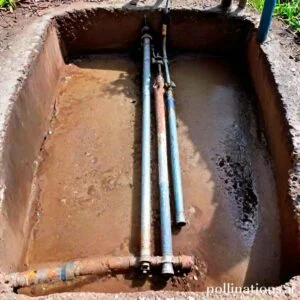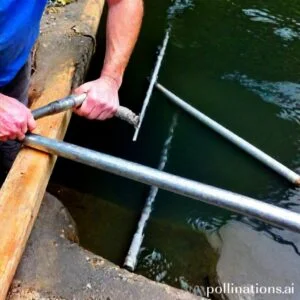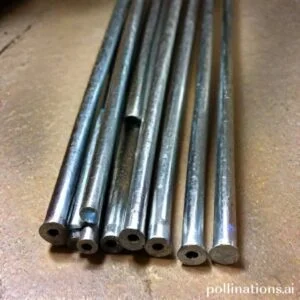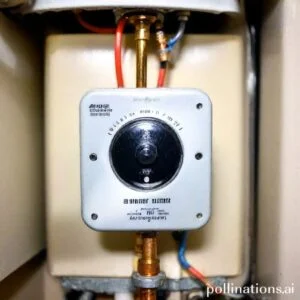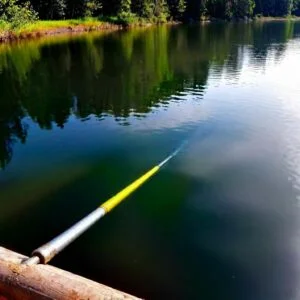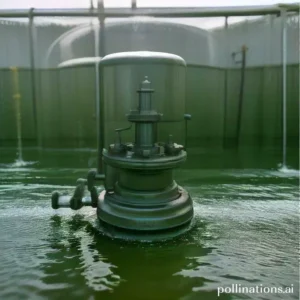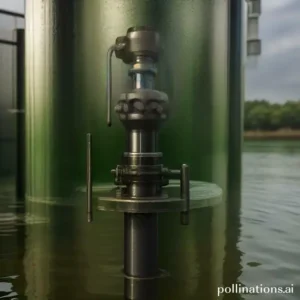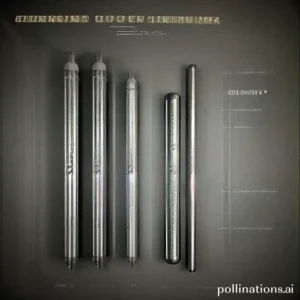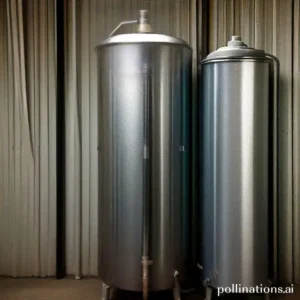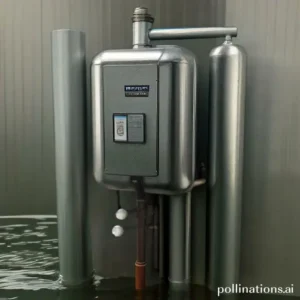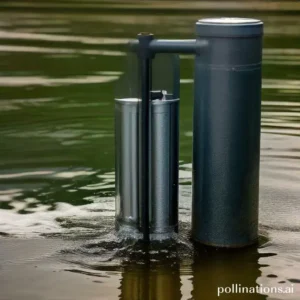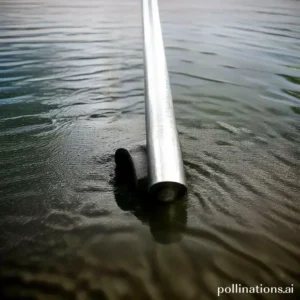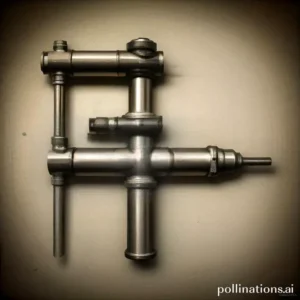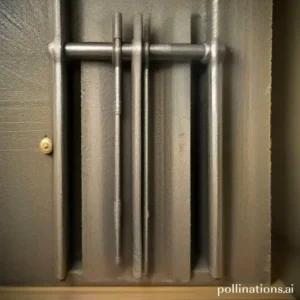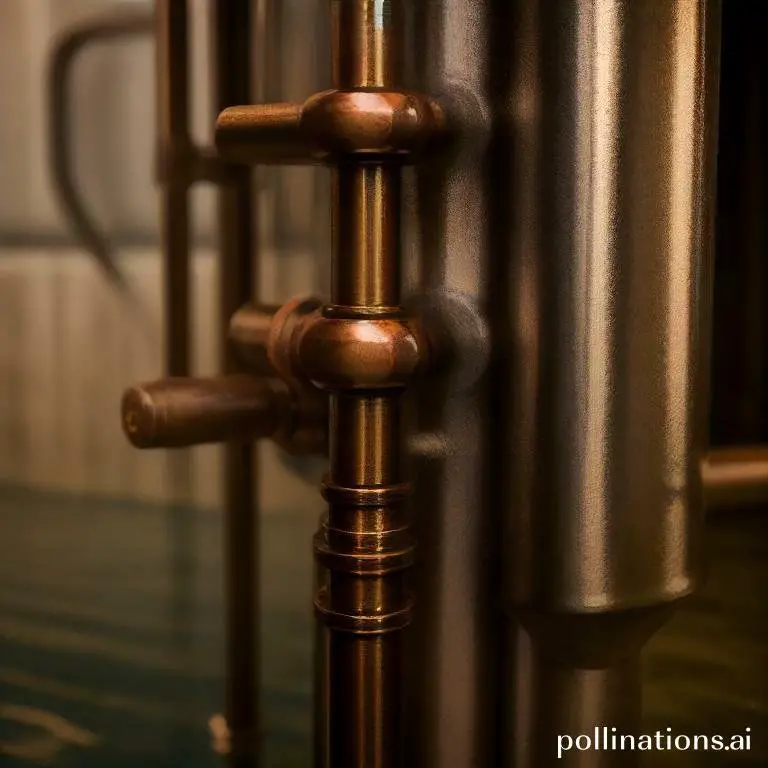
II. A worn-out anode rod can cause foul odors, discoloration, and sediment buildup in the water, leading to poor water quality and potential health hazards.
III. Regular inspection and replacement of the anode rod can ensure clean and safe hot water for household use, and also save money by avoiding costly repairs and replacements.
The condition of the anode rod greatly impacts the quality of hot water. The anode rod plays a vital role in preventing corrosion within the water heater tank.
When the anode rod is in good condition, it attracts corrosion-causing elements, protecting the tank from rust and ensuring clean, high-quality hot water. Nonetheless, if the anode rod is deteriorated or worn out, it can no longer effectively combat corrosion, leading to rusty water and a decrease in water quality.
Perceiving the importance of the anode rod’s condition is essential for maintaining a reliable and efficient hot water supply.
What is an anode rod?
An anode rod is an essential component of a water heater that plays a crucial role in protecting the tank from corrosion. It is typically made of a sacrificial metal that attracts corrosive elements, diverting them away from the tank lining and extending the lifespan of the water heater.
1. Composition and function of anode rod
An anode rod is usually composed of either magnesium or aluminum, both of which are highly reactive metals. This composition allows the rod to attract and absorb corrosive elements present in the water, such as minerals and impurities. Hence, the anode rod corrodes over time instead of the tank itself, sacrificing itself to protect the tank from rust and deterioration.
The function of the anode rod is to create a sacrificial barrier within the water heater. As the rod corrodes, it releases electrons that counteract the corrosive process, thereby preventing the tank from rusting. Regular inspection and replacement of the anode rod is necessary to ensure its effectiveness and maintain the longevity of the water heater.
2. Types of anode rods
There are different types of anode rods available in the market, each with its own advantages and suitability for specific water conditions. The most commonly used types include:
- Magnesium anode rod: This type is ideal for water heaters with soft water or low mineral content. Magnesium anode rods provide excellent protection against corrosion and are often preferred for residential use.
- Aluminum anode rod: Aluminum anode rods are better suited for water heaters with hard water or high mineral content. They are more durable and can withstand harsher water conditions, effectively preventing rust and corrosion.
- Zinc anode rod: Zinc anode rods are sometimes used in combination with magnesium or aluminum rods to provide additional protection against specific types of corrosive elements.
3. How anode rod works to protect water heater
The anode rod works by attracting corrosive elements present in the water, effectively diverting them away from the tank lining. As these elements come into contact with the anode rod, they react with the sacrificial metal, causing the rod to corrode instead of the tank. This sacrificial process prevents the tank from rusting and prolongs the lifespan of the water heater.
Regular inspection and maintenance of the anode rod is essential to ensure its effectiveness. Depending on the water conditions and usage, anode rods may need to be replaced every 2 to 5 years. Neglecting to replace a worn-out anode rod can result in accelerated tank corrosion and reduced efficiency of the water heater.
| Anode Rod Type | Suitable Water Conditions | Advantages |
|---|---|---|
| Magnesium | Soft water or low mineral content | Excellent protection against corrosion |
| Aluminum | Hard water or high mineral content | Durable and withstands harsh water conditions |
| Zinc | Varies, often used in combination with other rods | Additional protection against specific corrosive elements |
Signs of a Deteriorating Anode Rod
A deteriorating anode rod in a water heater can lead to various issues that may affect its performance and efficiency. Realizing the signs of a deteriorating anode rod, you can take timely action to prevent further damage and ensure the longevity of your water heater.
1. Discoloration and Corrosion
One of the primary signs of a deteriorating anode rod is discoloration and corrosion on its surface. Over time, the anode rod can become rusty or develop a white or greenish coating, indicating that it is no longer effectively protecting the water heater tank from corrosion.
2. Unusual Noises from the Water Heater
If you start hearing unusual noises coming from your water heater, it could be a sign that the anode rod is deteriorating. As the rod wears out, it can create popping or banging sounds as it reacts with the water and sediments inside the tank.
3. Foul Odor from Hot Water
A deteriorating anode rod can also contribute to a foul odor emanating from your hot water. The presence of sulfur or a rotten egg smell indicates that the anode rod is no longer effectively neutralizing the corrosive elements in the water, resulting in bacterial growth.
4. Decreased Hot Water Supply
If you notice a decrease in the amount of hot water available, it could be a sign that the anode rod is deteriorating. As the rod corrodes, it can create blockages or sediment buildup, reducing the capacity of the water heater and limiting the amount of hot water it can produce.
5. Presence of Sediment in Hot Water
Another indication of a deteriorating anode rod is the presence of sediment in your hot water. As the rod deteriorates, it can release particles that settle at the bottom of the water heater tank. This sediment can affect the overall performance and efficiency of the water heater.
Effects of a Deteriorating Anode Rod on Hot Water Quality
Rusty or Discolored Hot Water
When the anode rod in a water heater begins to deteriorate, it can lead to rusty or discolored hot water. This is because the anode rod is responsible for attracting corrosive elements in the water, preventing them from damaging the tank. As the rod deteriorates, it becomes less effective in this role, allowing rust and other impurities to mix with the hot water.
Metallic Taste in Hot Water
Another effect of a deteriorating anode rod is a metallic taste in the hot water. As the rod deteriorates, it can release small metal particles into the water, giving it a metallic flavor. This can be unpleasant for those using the hot water for drinking or cooking.
Increased Risk of Bacteria Growth
A deteriorating anode rod can also increase the risk of bacteria growth in the water heater. The rod helps prevent the growth of bacteria by creating an environment that is less conducive to their survival. When the rod deteriorates, this protective barrier is weakened, allowing bacteria to thrive and potentially contaminate the hot water.
Reduced Efficiency of Water Heater
As the anode rod deteriorates, the efficiency of the water heater can be significantly reduced. This is because the rod plays a crucial role in preventing corrosion within the tank. When the rod is no longer functioning properly, corrosion can occur, leading to decreased efficiency and potentially higher energy bills.
Shortened Lifespan of Water Heater
A deteriorating anode rod can also contribute to a shortened lifespan of the water heater. Without the protection provided by the rod, the tank is more susceptible to corrosion, which can lead to leaks and other issues. This can ultimately result in the need for a premature replacement of the water heater.
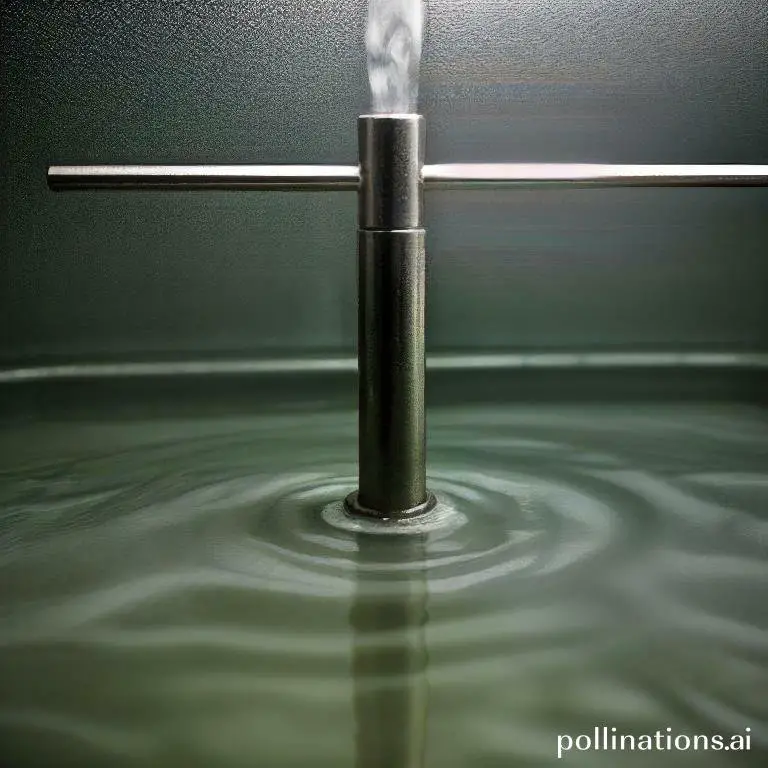
Replacing anode rod
The anode rod is a crucial component of your water heater that helps prevent corrosion by attracting corrosive elements in the water. Over time, the anode rod can become depleted, requiring replacement to ensure the longevity and efficiency of your water heater.
1. When to replace anode rod
It is recommended to inspect and potentially replace the anode rod every 3-5 years, depending on the water quality in your area. If you notice signs of corrosion on the rod, such as rust or pitting, it is a clear indication that replacement is necessary.
2. Steps to replace anode rod
Replacing the anode rod can be a DIY project for those with basic plumbing skills. Here are the steps involved:
- Shut off the power to the water heater and allow it to cool down.
- Locate the anode rod, typically found on the top of the water heater.
- Use a wrench to loosen and remove the old anode rod.
- Insert the new anode rod and tighten it securely.
- Turn on the water supply and check for any leaks.
- Restore power to the water heater.
3. Importance of hiring a professional for anode rod replacement
Meanwhile replacing the anode rod can be done as a DIY project, it is recommended to hire a professional for this task. A professional plumber has the expertise and tools to ensure the proper installation of the anode rod, minimizing the risk of leaks or damage to the water heater.
| Key Points | Benefits |
|---|---|
| Prevent corrosion | Extends the lifespan of your water heater |
| Regular inspection | Identify the need for anode rod replacement |
| DIY replacement | Saves money on professional services |
| Hiring a professional | Ensures proper installation and minimizes risks |

Maintaining anode rod for better hot water quality
The anode rod is a crucial component of a water heater that plays a significant role in maintaining the quality of hot water. Regular inspection and maintenance of the anode rod can ensure optimal performance and prolong the lifespan of your water heater.
1. Regular inspection of anode rod
2. Flushing the water heater
Regularly flushing the water heater helps remove sediment and mineral buildup that can affect the efficiency of the anode rod. Sediment accumulation can accelerate the corrosion process and reduce the effectiveness of the rod. Flushing the water heater once every six months can help maintain the anode rod’s performance.
3. Installing a water softener
If your water supply has high mineral content, it is advisable to consider installing a water softener. Hard water can accelerate the corrosion of the anode rod and reduce its lifespan. A water softener can help reduce mineral buildup and protect the anode rod from premature damage.
4. Using a sacrificial anode rod
A sacrificial anode rod is made of a more reactive metal than the water heater tank. It attracts corrosive elements and sacrificially corrodes instead of the tank, extending the lifespan of the water heater. Regularly replacing the sacrificial anode rod can help maintain the quality of hot water and protect the tank from corrosion.
| Key Maintenance Steps | Benefits |
|---|---|
| Regular inspection of anode rod | Identify and replace corroded rods |
| Flushing the water heater | Remove sediment and mineral buildup |
| Installing a water softener | Protect the anode rod from hard water |
| Using a sacrificial anode rod | Extend the lifespan of the water heater |
Bottom Line
Regular maintenance of anode rods is crucial for ensuring the quality of hot water. The condition of the anode rod directly affects the corrosion level of the water heater tank, which can lead to rust and sediment buildup. This buildup can negatively impact the taste and smell of the hot water, as well as reduce its efficiency and lifespan. It is recommended to inspect and replace anode rods every 3-5 years, depending on the water quality and usage. By taking care of the anode rod, homeowners can enjoy clean and reliable hot water for years to come.
Ignoring anode rod maintenance can lead to costly repairs and replacements, as well as potential health hazards from contaminated water. Therefore, vital to prioritize regular maintenance and seek professional help if necessary. Hence, homeowners can ensure the longevity and efficiency of their water heater, as well as the safety and quality of their hot water supply.
Read More:
1. Anode Rod Maintenance During Water Heater Flush
2. Signs That Your Anode Rod Needs Immediate Attention
